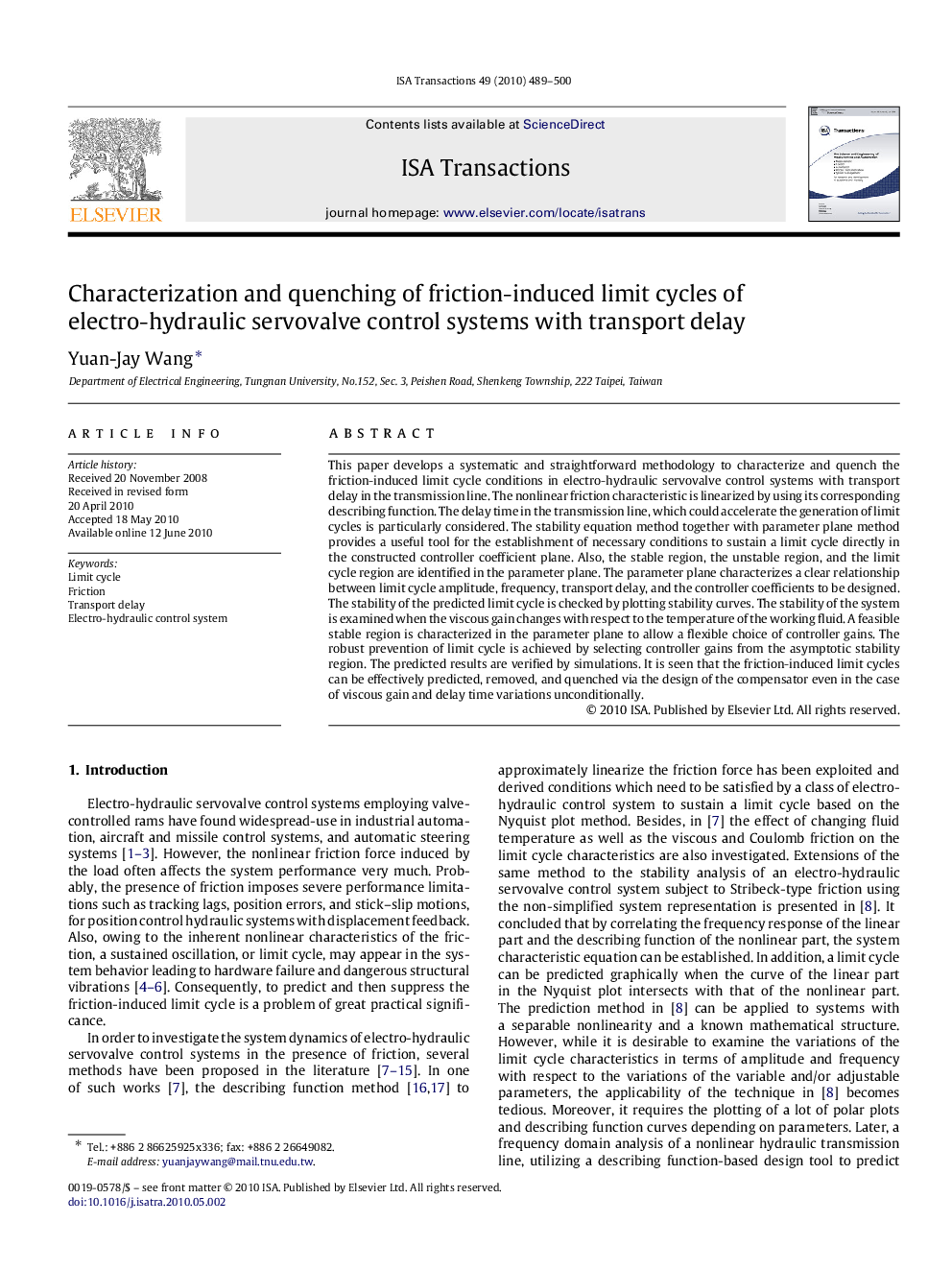| کد مقاله | کد نشریه | سال انتشار | مقاله انگلیسی | نسخه تمام متن |
|---|---|---|---|---|
| 5005144 | 1369010 | 2010 | 12 صفحه PDF | دانلود رایگان |

This paper develops a systematic and straightforward methodology to characterize and quench the friction-induced limit cycle conditions in electro-hydraulic servovalve control systems with transport delay in the transmission line. The nonlinear friction characteristic is linearized by using its corresponding describing function. The delay time in the transmission line, which could accelerate the generation of limit cycles is particularly considered. The stability equation method together with parameter plane method provides a useful tool for the establishment of necessary conditions to sustain a limit cycle directly in the constructed controller coefficient plane. Also, the stable region, the unstable region, and the limit cycle region are identified in the parameter plane. The parameter plane characterizes a clear relationship between limit cycle amplitude, frequency, transport delay, and the controller coefficients to be designed. The stability of the predicted limit cycle is checked by plotting stability curves. The stability of the system is examined when the viscous gain changes with respect to the temperature of the working fluid. A feasible stable region is characterized in the parameter plane to allow a flexible choice of controller gains. The robust prevention of limit cycle is achieved by selecting controller gains from the asymptotic stability region. The predicted results are verified by simulations. It is seen that the friction-induced limit cycles can be effectively predicted, removed, and quenched via the design of the compensator even in the case of viscous gain and delay time variations unconditionally.
Journal: ISA Transactions - Volume 49, Issue 4, October 2010, Pages 489-500